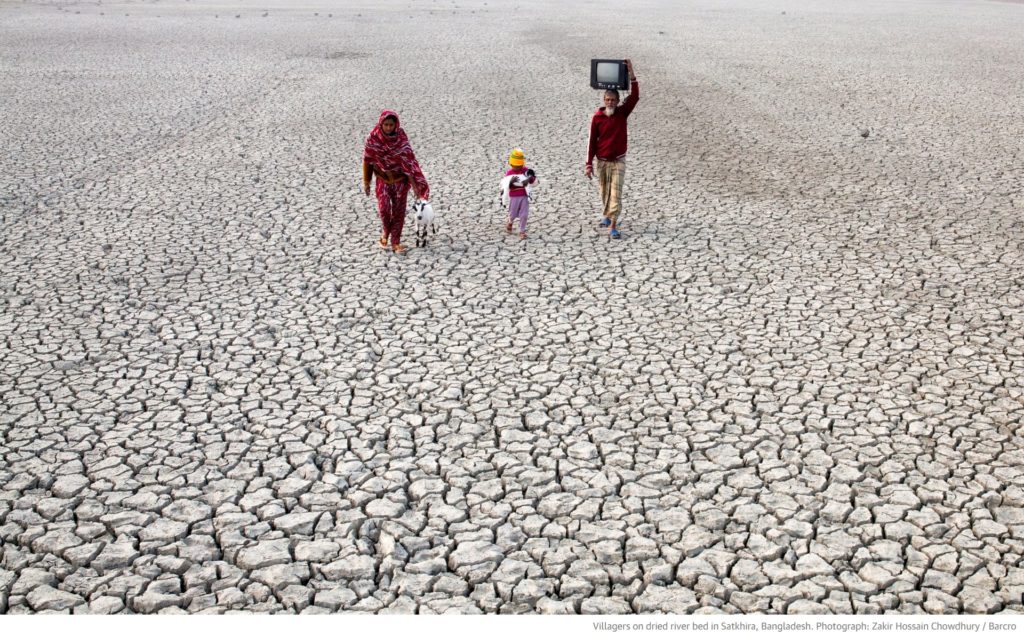Rarely has the scramble for resources been an orderly affair. Climate change adds a new dimension of strife that upsets geopolitical balances, engulfing fragile nations and forcing people to flee poverty. Conflict and migration are becoming ever more interlinked with changes in climate. A new study has finally grounded these correlations in data and fact.
—
How has climate change affected human migration?
While droughts, food shortages and climate-related stressors have long been assumed to be “push factors” for instability since Biblical times, scientific evidence for these phenomena has been circumstantial. Migrations resulting from man-accelerated climate change have been subjects of debate in international fora, with numerous United Nations agencies taking an active role devising contingency and mitigation plans as part of the wide-ranging Post-2015 Development Agenda.
It is of course a political hot button in Europe, where over 2.3 million illegal migrants entered the EU’s borders in 2015 and 2016 alone. Yet, the human origins of climate change are seldom mentioned as an igniting factor behind large-scale human migration in public discourse.
You might also like: How The Climate Crisis is Fuelling Extremism

Climatic conditions have been blamed for creating political unrest, civil war and subsequently, waves of migration.
“Changing weather, floods and droughts in many places increasingly threaten people’s safety and livelihoods. That is leading a lot of families to have to consider whether they can stay where they are, or try to live somewhere else,” said Koko Warner who leads the migration section of the Institute for Environment and Human Security at the UN University.
“For example, if you’re a farmer and the rains fail you for several years in a row, you may all of a sudden lose not only your access to food, but your entire source of income, and the well-being of your entire family can become very precarious,” explained Warner.
The study indexed a number of drought indicators on a scale of severity, including measurements of temperature and rainfall in countries where most migrants originate from.
Innovatively, the results were correlated with socio-economic and geographic data on migrants themselves, including distance between the countries of origins and migration destinations, population sizes, migrant networks, ethnic and religious demographics. Data on conflict and civil unrest was analysed using data on battle-related deaths.
Focusing on the decade from 2006 to 2015, the team found that human-driven climate change can cause and exacerbate conflict, leading to an increase in migration.
“Climate change will not cause conflict and subsequent asylum-seeking flows everywhere. But in a context of poor governance and a medium level of democracy, severe climate conditions can create conflict over scarce resources,” said an IIASA team member.
The Middle East and Africa are prime examples of this dynamic.
In Syria, long-running droughts and water shortages caused by climate change resulted in repeated crop failures, with rural families eventually moving to urban areas. This internal migration led to urban overcrowding and unemployment, factors that fuelled widespread resentment and primed the country for the ensuing civil unrest.
There is little evidence that environmental pressures in the Middle East or Africa will ease anytime soon. The Intergovernmental Panel on Climate Change (IPCC) warns that those regions will experience some of the worst water shortages as the century progresses.
Africa alone is projected to have 250 million people living in regions with food and water insecurity by the end of the century, which will likely increase the flow of climate migrants.
Further research is needed to fully understand migration flows and climate-change related displacement, but IIASA scholar Raya Muttarek says their work “contributes to the debate on climate-induced migration by providing new scientific evidence”.













